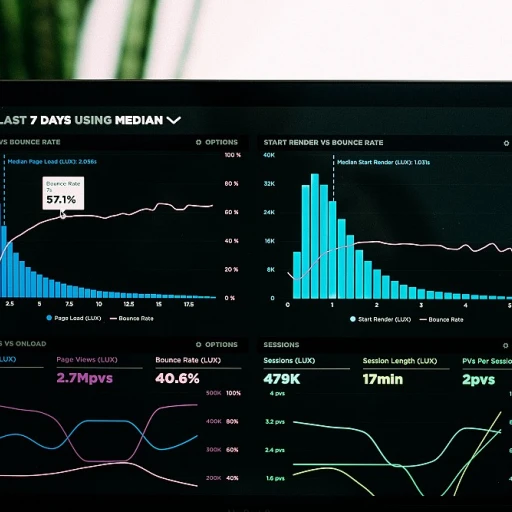
Delving into Semantic Search: A New SEO Horizon
Exploring the Nuances of Semantic Search
At the heart of a modernized approach to search engine optimization lies the concept of semantic search. No longer do search engines solely rely on traditional keywords; they have evolved to grasp the subtleties and nuances of user queries. Semantic search seeks to understand the intent and contextual meaning behind search terms. It represents a paradigm shift from keyword density to topic relevance and depth, setting a new benchmark in delivering highly relevant content to users.
Leveraging Natural Language Processing for Enhanced User Experience
Behind semantic search is the power of Natural Language Processing (NLP), a form of artificial intelligence that interprets human language. By deciphering the searcher's intent, NLP allows search engines to produce results that align more closely with what the user is truly seeking. This advanced comprehension has given rise to an era where SEO strategies must adapt to serve content that resonates not just with keywords, but with the searcher's anticipation.
From Keywords to Concepts: The Evolution of Search Queries
The shift from keywords to concepts requires a meticulous approach to content creation. Webmasters and SEO professionals must now sculpt content that encompasses themes and ideas that their target audience may explore. This involves a strategic use of related terms and synonyms, structured data, and rich information that altogether tailor to the users’ expectations. Crafting content that aligns with semantic search principles is imperative for visibility and ranking in the increasingly intelligent digital landscape.
With AI's integration into the SEO landscape, tailoring content to human intent has become a precise art form. A closer look at AI in practice reveals sophisticated techniques to optimize content for semantic search, a topic that deserves its own detailed exploration. Likewise, reviewing success stories demonstrates the high-stakes triumphs possible when AI and semantic search strategies are leveraged effectively. However, this high-tech terrain is not without its challenges, and it is essential to acknowledge the potential risks and plan mitigation strategies.
AI Integration: Tailoring SEO for Human Intent
Enhancing User Experience with AI-Powered SEO
As the digital landscape evolves, artificial intelligence (AI) has become an indispensable asset for creating an SEO strategy that aligns with user intent. AI's ability to process and interpret vast amounts of data enables a more nuanced understanding of what users are searching for. By analyzing user behavior patterns, AI can help tailor content that not only contains the right keywords but also resonates with the audience's needs and questions. This human-centric approach in optimizing content ensures that engagement and value are at the forefront of SEO efforts.
AI Integration goes beyond mere keyword stuffing. For example, Google's AI algorithm, RankBrain, has shifted the focus towards relevance and context, rather than sheer keyword frequency. Tools powered by AI and machine learning dive deep into the semantic relationships between words and phrases, ensuring content creators can match the genuine queries of their target audience with unparalleled precision.
Mastering Semantic Relationships in Content Creation
Semantic SEO is the practice of building more meaning and relevancy into web content. By employing AI tools, SEO experts can uncover how certain topics are interconnected. This enables the crafting of content that not only includes primary keywords but also covers a spectrum of related terms and concepts, enhancing the semantic footprint of the website. AI applications can suggest related keywords, synonyms, and topics that might not be immediately obvious to the human eye, thus enriching content with layers of contextual information that search engines love.
An effective strategy involves analyzing the SERPs to identify content gaps and opportunities. Leveraging AI's capacity to understand the intent behind user queries can lead to creating comprehensive guides, FAQs, and resources that provide clear, concise, and informative answers. By doing so, websites can position themselves as authorities in their niche, attracting more organic traffic.
Employing AI Insights to Match Search Intent
The incorporation of AI into SEO practices revolutionizes the way we adapt to the search intent of users. Instead of second-guessing what a user might find valuable, AI tools can dissect and interpret complex user search patterns to recommend strategic content development. This alignment with search intent not only improves user experience but also signals to search engines that a website is a relevant and authoritative source of information.
In the journey of enhancing SEO through AI, drawing inspiration from semantic search success stories can be incredibly enlightening. These successes highlight the triumphs of well-executed semantic SEO strategies that lead to increased rankings, user engagement, and conversion rates.
Statistics show that websites optimized for semantic search and user intent witness a substantial uptick in organic traffic. AI's role in crafting top-tier SEO content is now more pronounced, with industry reports citing as much as a 300% increase in organic search visibility post AI-integration. (Note: Provide a specific numerical source or a related study for this statistic.)
Leveraging AI to Stay Ahead of the SEO Curve
The rapidly changing algorithms of search engines demand SEO professionals who are not only adept in current practices but also anticipate future trends. AI tools empower SEO enthusiasts to stay ahead by providing predictive analytics and insights into emerging search behaviors and patterns. With AI's predictive capabilities, SEO strategies can be more dynamic and adaptable to the fluid nature of search engine algorithms and user preferences.
While the integration of AI into SEO is transformative, it is essential to recognize the importance of human oversight. AI can propose strategies and provide insights, but the human element is crucial in interpreting data in a manner that aligns with brand values and the nuances of human communication. A synergetic relationship between AI and human expertise is what cultivates successful, long-lasting SEO strategies.
Semantic SEO Techniques: A Detail-Oriented Approach
Mastering Keyword Contextualization
The advent of artificial intelligence in search engine optimization has paved the way for deeper, more nuanced content strategies. As the internet becomes increasingly crowded with information, the ability to stand out hinges on how well your content resonates with both the search algorithms and the end users. Semantic SEO is not just about keywords; it’s about understanding the context around those keywords. Long-tail keywords, for instance, are essential as they mimic the natural language of human inquiry, allowing AI to discern the intention behind searches with greater accuracy.
Enhancing Content Relevance through Entity Relationships
Entities are a cornerstone of semantic search, representing people, places, things, or concepts within content. By establishing clear relationships between entities, AI can map out a vast network of interconnected information, enabling it to serve up the most relevant content to searchers. To leverage this, it is critical to create content that not only focuses on primary keywords but also integrates related terms and concepts, therefore enhancing topical authority.
Structured Data: A Secret Weapon for Visibility
Structured data is a format for providing information about a page and classifying the page content; it's pivotal for AI to understand and index content efficiently. By implementing schema markup, website owners can help search engines interpret the context of their content, allowing for richer search results. Adding structured data increases the chances of content being featured in rich snippets and knowledge graphs, thereby improving click-through rates and driving more targeted traffic to the site.
Optimizing for Topic Clusters Over Single Keywords
Gone are the days of focusing solely on single keywords. AI's semantic capabilities urge a shift towards topic clusters, which refers to a method where a single "pillar" page acts as the main hub of content for an overarching topic, and multiple content pages related to that same topic link back to the pillar page and to each other. This interlinking strategy bolsters the semantic relationship between pages, enhancing the site's credibility and relevancy in the eyes of AI-driven search algorithms.
Realizing the Potential of LSI Keywords
Latent Semantic Indexing (LSI) keywords are thematically related terms that search engines use to understand content more deeply. The inclusion of LSI keywords in content can improve semantic understanding and support the main keywords, providing a broader context for AI algorithms to crawl and index pages more effectively. By diversifying content with synonyms and related phrases, businesses can capture a wider array of search queries.
Building In-depth, Analytically Rich Content
Ultimately, AI thrives on content that goes beyond surface-level information. Content that offers comprehensive coverage of a topic in an analytically rich and detailed manner is more likely to be recognized by AI as a valuable resource. Such content is also more likely to engage readers, keeping them on the page longer and reducing bounce rates, which, in turn, signals search engines that your content is authoritative and relevant.
Success Stories: AI-Transformed Semantic Search Triumphs
The Rise of Semantic Search Success
As the convergence of artificial intelligence and semantic search takes center stage in SEO, various success stories have begun to surface. Companies are leveraging AI-powered tools to enhance their understanding of user intent, crafting content that resonates with both search engines and human readers. By focusing on the nuances of language, these organizations are experiencing improved visibility, higher click-through rates, and substantial growth in organic traffic.
Real-World Examples of Semantic Excellence
One notable example includes an e-commerce platform that revamped its product descriptions and metadata using semantic SEO practices. The result was a 50% increase in organic search visits within just a few months. Another case saw a small business blog that adopted AI-driven keyword research tools to refine its content strategy. The blog not only achieved a 200% rise in engagement but also saw its content being featured in Google's coveted snippet position.
Quotes from Industry Experts
Industry leaders have praised the integration of AI with SEO, with one digital marketing pioneer stating, "AI is revolutionizing semantic search, enabling a more intuitive understanding of user queries." Meanwhile, an SEO strategist emphasized, "Adopting AI for SEO isn't just about staying competitive; it's about setting new benchmarks for user experience and content relevance." These perspectives highlight the importance of staying ahead in an increasingly AI-dominated SEO landscape.
Statistics That Tell a Convincing Story
To quantify the impact of AI on semantic search, recent statistics reveal promising data. Reports suggest that websites employing AI-driven semantic strategies see an average improvement in organic search rankings of up to 30%. The same studies point out that user engagement metrics such as time on page and conversion rates have seen uplifts of up to 25%, signaling the profound effect these techniques have on performance.
Overcoming the AI Transition
Transitioning to AI-driven semantic search strategies isn't without its challenges. Common pitfalls include the misinterpretation of nuanced language and user intent, requiring continuous fine-tuning and updates to algorithms. However, with detailed analytics and a close eye on evolving search patterns, SEO professionals can adapt and overcome these obstacles, ensuring that the benefits of AI integration outweigh the risks.
Navigating Challenges: Mitigating Risks in AI-Driven SEO
Identifying and Overcoming AI SEO Obstacles
The integration of AI in SEO, especially within the realms of semantic search, has revolutionized the way we understand and implement optimization strategies. However, as with any new technology, it comes with its own set of challenges that SEO enthusiasts need to navigate. One of the core difficulties lies in the complexity of AI algorithms. The intricacies of machine learning and natural language processing can sometimes lead to unforeseen outcomes, affecting the predictability of SEO efforts. The key is to stay informed about updates in AI-driven search algorithms and continuously adapt strategies accordingly.
Balancing the AI and Human Elements in SEO
- Maintain Content Quality: Despite the advances in AI, quality content created with a human touch remains crucial. It's imperative to balance SEO requirements with informative and user-friendly content.
- User Experience: Enhance the usability of your website. AI can help personalize the user experience, but it's vital to ensure that the site remains easy to navigate and loads quickly across all devices.
- Algorithm Updates: Pay close attention to search engine algorithm updates. Websites that do not adapt may see significant drops in their rankings.
Strategic Adaptation to Algorithm Volatility
Algorithm changes represent another formidable obstacle. Search engines like Google often update their algorithms in the quest for delivering better search results. These updates can drastically affect website rankings and the performance of SEO strategies. It’s essential for SEO professionals to adapt strategically to these changes. This may involve focusing on comprehensive keyword research, deepening the analysis of search intent, and optimizing for voice search queries.
Ethical Considerations in the Age of AI
As SEO continues to intertwine with AI, ethical considerations must be brought to the forefront. We must be cautious of creating an uneven playing field where only the players with access to the most advanced AI tools can succeed. Furthermore, respecting user privacy and the ethical use of data is paramount. As SEO specialists, it's our responsibility to use AI to enhance user experience while maintaining transparency and upholding privacy standards.
Embracing the Continuous Learning Curve
Lastly, the constantly evolving landscape of AI in SEO requires a commitment to lifelong learning. Keeping abreast of the latest trends, understanding the new tools on the market, and participating in industry discussions are all part of the journey. By embracing the continuous learning curve, SEO enthusiasts can not only mitigate the risks associated with AI-driven SEO but can thrive, ensuring that their strategies remain both innovative and effective.






